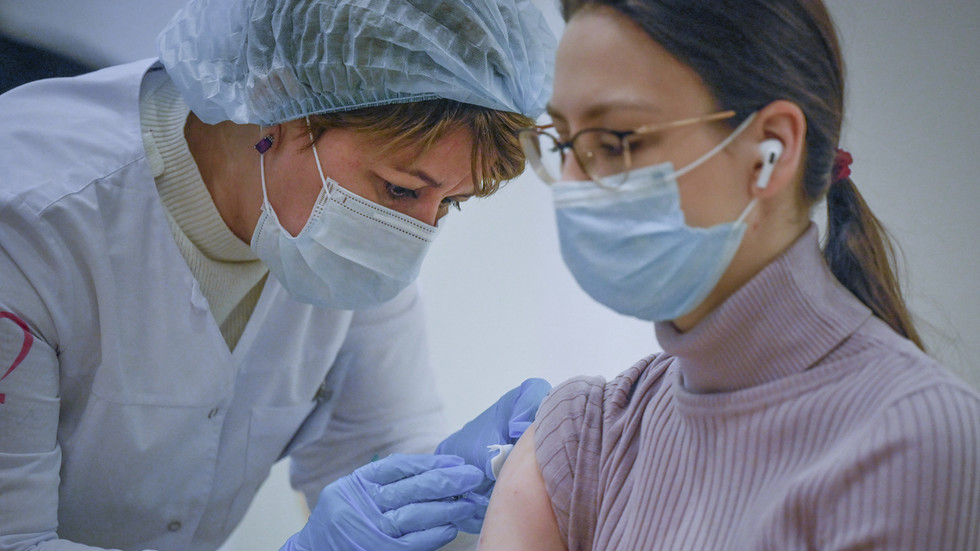
The chief of the national health watchdog says coronavirus has given way to influenza and other respiratory infections

A healthcare worker administers a dose of Russia’s Sputnik V Covid-19 vaccine to a patient at a vaccination centre in Moscow on January 31, 2022. © Natalia KOLESNIKOVA / AFP
Vaccination against COVID-19 is no longer needed, but people should remain vigilant, as the number of coronavirus hospital admissions in Russia is growing, the head of Russian health watchdog Rospotrebnadzor, Anna Popova, announced on Wednesday.
Popova said the peak of the COVID-19 incidence wave had passed in Russia, and that rises in coronavirus cases were now seasonal. Russia will not launch a new mass vaccination campaign, Popova said in an interview with Rossiya 24, explaining that there had been “an upsurge in the autumn, but it has already gone.”
Covid-19 is not the only respiratory disease currently circulating worldwide. The health official stressed that coronavirus has now given way to influenza and other respiratory viruses, the incidence of which has increased. Despite that fact, Covid-19 has been on a slow upward trend recently.
Popova noted that hospitalizations of patients with coronavirus had increased by 40%. She interpreted the figure as meaning that people did not seek medical help and preferred self-treatment at home. When such patients eventually visit the doctor seeking assistance, it is sometimes “too late to receive outpatient treatment,” and they are taken to hospitals, she said.

Read more
In November 2023, Popova reported a new wave of Covid-19 cases in the country. The Gamaleya National Center for Epidemiology and Microbiology, creator of the Sputnik V vaccine, stated that the shot had lost its effectiveness and a new version of the vaccine was being prepared for release by March 2024 to target new variants of the virus. In December, the Ministry of Health registered the updated one-shot Sputnik Light vaccine.
Covid-19 emerged in late 2019 and developed into the most widespread epidemic in nearly a century. In the three years since, the disease has killed about seven million people worldwide. However, some estimates suggest the total number of deaths globally could be nearly 18 million, according to medical journal The Lancet.
At the recent Davos Forum in Switzerland, world leaders discussed the ‘Disease X’ pandemic, a hypothetical virus postulated to be 20 times deadlier than Covid-19. While such a virus is not known to currently exist, researchers, scientists, and experts are considering a plan of action to prepare health systems if such a pandemic were to emerge.




